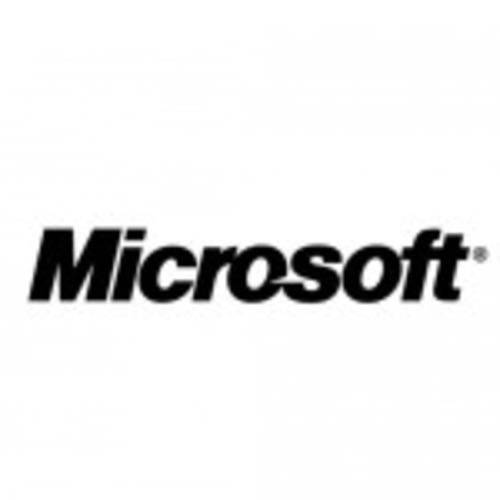Wonder what $1 billion will get you? Depending on your tastes, you can pick up a neat photo app with no business model, or a hefty collection of software patents from a struggling company.

Pending regulatory approval, Microsoft will buy more than 800 patents and related patent applications from AOL for $1.056 billion in cash. Not surprisingly, many of the patents being acquired will help position Microsoft in patent attacks on Google. But they’re not likely to do much to help the tech industry or spur innovation.
AOL will continue to hold 300 patents “spanning core and strategic technologies, including advertising, search, content generation/management, social networking, mapping, multimedia/streaming, and security among others.” The 300 patents retained by AOL will be licensed to Microsoft non-exclusively, while AOL keeps a license to the patents it’s selling to Microsoft.
Bloomberg reported that AOL was looking to sell its patents in March, and had engaged Evercore Partners to find a buyer. Apparently Microsoft didn’t require a lot of arm-twisting to decide that it wanted to drive home with the patents.
What Microsoft is Getting
The dish on AOL’s patent portfolio is that it has a mix of patents that fit nicely into an anti-Google strategy. Envision IP dug into about 700 patents assigned to AOL.
At the top of the list for Microsoft is likely to be the 77 patents that relate to search. According to Envision, many of the patents that relate to search “have priority dates between 1995 and 2001, possibly giving AOL proprietary technology that dates back to the formative years of Internet development, and more specifically, search engine technology development.” In short – patents that Google might have a hard time knocking down for prior art.
The patent company found that about 140 patents were related to online communications, “covering contact list management, status indicators and visibility settings, group messaging, the use of avatars and icons associated with chat profiles, as well as interoperability technology between various online messaging platforms.”
Another batch, about 80, are browser tech and user interface patents. This includes everything from rendering Web pages to RSS feed tech, cache optimization, and more.
Many of the patents are related to network security, network hardware and routing, and 41 of the patents are related to voice communication.
Finally, Envision noted that 29 of AOL’s patents “could be applied to social networking systems.” This ranges from forum moderation to “access controls and privileges in online communities.”
Gunning for Google
Microsoft isn’t the most profitable company in tech any more, but it’s not exactly digging through couch cushions for gas money either. Still, a company doesn’t drop $1 billion on a patent portfolio just to stick it on the mantle and appreciate its aesthetic qualities. What is likely to happen if the deal is approved?
Software patents don’t do anything to improve Microsoft’s existing portfolio of products. They’re useful to the company only if it thinks it can extract licensing fees, defend itself against existing or likely patent suits, or help it execute patent suits against other companies.
If you look at the collection that Envision has identified, it’s pretty clear they cover many of the businesses in which Microsoft and Google compete. Search, Web browsers, instant messaging, email and social networking are all areas where Microsoft is competing with Google. In many of those businesses, Microsoft isn’t faring so well – or is clearly worried that Google will start to encroach on its areas of strength.
Microsoft has already been trying to jam legal sticks in Google’s spokes for quite some time, though it’s avoided a full frontal attack – so far.
Ballmer’s minions have been arranging back-room deals to siphon licensing fees off of companies selling Android devices. When it can’t do that, it goes to court.
If Microsoft gets AOL’s patent portfolio, and assuming the company’s purchase isn’t hamstrung the same way that the Novell/CPTN deal was, its safe to assume that Microsoft will file patent suits against Google in short order.
What it Means for AOL
The deal gives AOL a little boost in the bottom line, but doesn’t really address the company’s long-term problems. AOL is still seeing its former core business (dial-up Net access) waste away, and its advertising business has not been able to pick up the slack. At the end of 2008, AOL’s revenues topped $4 billion. That dropped to $3.1 billion in 2009, and $2.3 billion in 2010. AOL pulled in $2.1 billion in 2011.
The $1 billion shot in the arm will certainly help in the short term, but it’s like the Daffy Duck show-stopper: AOL can only sell those patents this once. With the announcement, AOL has the applause of investors for a while – but how is it going to deliver more? The patent well is almost dry.
Update: AOL investors certainly seem happy with the deal, pushing the stock up almost 8 points, a whopping 43%! The bump could be due to AOL saying it will “distribute a ‘significant portion’ of the proceeds to restive shareholders,” according to the New York Times. Meanwhile, the Wall Street Journal reports the deal is an “essentially tax-free transaction.” The deal also puts at least short-term pressure on investors who had been shorting the troubled company.
Patents: Still a Problem
This deal calls for more than $1 billion to change hands, with zero long term value for AOL’s shareholders or Microsoft’s customers. The only potential here is to protect Microsoft from patent trolls, and/or help Microsoft do a little trolling of its own.
Microsoft could have used the $1 billion to buy a company like Instagram that would help it compete with Google, Apple and others. Instead, it’s pouring the money into a company that’s less relevant by the day, and will likely use its purchase to stifle innovation instead of support it.
If there’s a silver lining here for anyone other than AOL and the lawyers, I don’t see it.

















